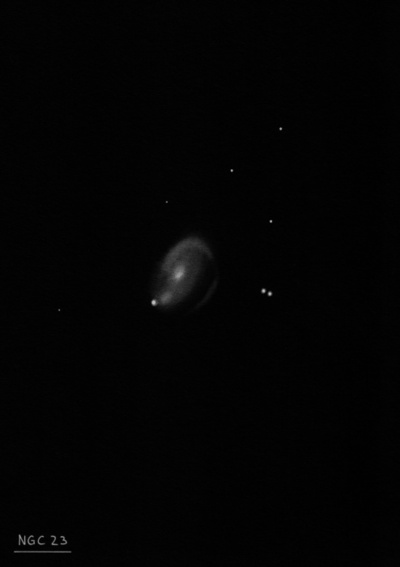
William Herschel discovered NGC 23 = H III-147 on 10 Sep 1784 (sweep 264) and recorded as "2 or 3 stars in a line, with seeming nebulosity between them." I only noted a single superimposed star, though the second "star" may be the nucleus. Dreyer observed the galaxy on 21 Nov 1875 using LdR's 72" and described a "vS neb, with a starlike nucl = 11-12 mag and a *13 in PA 135.2°. Dist 26.2"." The NGC position matches UGC 89 (Englemann measured an accurate position, in Astronomische Nachrichten 2485).
200/250mm - 8" (7/24/82): faint, small, elongated NW-SE, stellar nucleus. A star is at the SE end.
400/500mm - 17.5" (11/14/87): fairly faint, fairly small, elongated NNW-SSE, diffuse. Unusual appearance as a mag 14 star is superimposed 26" SE of center. Forms a pair with NGC 26 9' SE. Brightest member of a group (LGG 002) at a distance of ~200 million l.y.
Notes by Steve Gottlieb